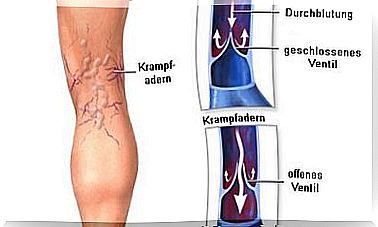That’s Why You Gain Weight Again After A Diet
The yo-yo effect after a diet is well known. But what is the reason for gaining weight after losing weight and what can you do about it?

After a diet, the pounds lost are often quickly recovered. The yo-yo effect sets in.
But why doesn’t it work for everyone, why can some maintain their weight and others gain weight again quickly? How can you prevent your dream weight from becoming a dream again after a diet instead of remaining a reality?
After a diet is before a diet?
After a diet , many believe that they can maintain their dream weight, but the reality is very different, because in most cases the pounds are quickly back.
The yo-yo effect sets in. So does this mean that after one diet, the next one has to follow immediately in order to maintain the dream weight?
No, it doesn’t mean if you don’t make mistakes after dieting and have learned something during the diet. Today we will explain to you what mistakes these are. If you pay attention, you don’t have to start the next diet straight away after one diet.
Avoid the following mistakes:

Powder diet
A powder diet replaces several meals a day with powder meals. These ensure that your body gets all the vitamins and minerals, but with a reduced calorie intake.
As a result, the pounds drop very quickly and the success is visible after a short time.
The disadvantage: during a powder diet, you only learn to stir powder without lumps. You’re not learning what a healthy diet looks like. And this is exactly the knowledge you need to be able to maintain your weight after a diet.
After a powder diet, most of those willing to lose weight fall back into their old eating habits and the pounds are all back.

Extreme diet
An extreme diet, in which the diet does not provide the nutrients necessary for the body, corresponds to malnutrition.
Malnutrition usually leads to a loss of muscle mass. But your muscle mass is your “engine” that burns calories and determines the basal metabolic rate.
If the “motor” has become smaller after such an extreme diet, your basal metabolic rate is much lower than before the diet with “large motor”.
If you are now eating normally again and not dieting, there are too many calories for the lower basal metabolic rate. This way you will gain weight again faster. When you can worry about it …

Too much exercise
Yes, sport is healthy and exercise is not only part of every diet, but also part of everyday life. But to move, we need energy. And it is a misconception that all of the energy required for sport comes from unwanted fat deposits. Unfortunately, our body works differently.
In emergency situations in which the body has to perform a lot with little food intake (i.e. a lot of sport during a diet), it gets its energy from protein, which is faster than from fat.
And as you know, our muscle mass is made up of protein. The body uses the protein from muscle mass to quickly gain energy and you lose muscle mass instead of building it up during exercise.
Why does the body do this? In times of need, when we humans wandered around as hunters and gatherers, this made a lot of sense: as already explained, the basal metabolic rate decreases when the muscle mass decreases.
In this way, the body gets by with the small amount of food available without going hungry. Ideal for a harsh winter in the Stone Age, somewhat unfavorable for those who want to lose weight in modern times.

stress
Even if you’ve done everything right, the yo-yo effect can set in. Even if you
- have sought nutritional advice,
- haven’t got a powder diet behind you,
- have not been on an extreme diet,
- have only moved moderately or
- learned a healthy diet.
Even then, it can happen that you gain weight again after a diet.
That may be very frustrating, but there is a logical explanation for it: the healthy, balanced diet with which you manage to maintain your weight in the long term after a diet is like a foreign language that you have learned in nutritional counseling.
In everyday life you are confident in the foreign language, your new eating habits are easy for you, you even have fun with the foreign language.
But with stress, grief and in exceptional situations you always fall back into your mother tongue : in words as well as in nutrition. You fall back into your old eating habits.
And if you don’t notice yourself, you live happily in your mother tongue / your old eating habits until the scales shock you or the new clothing size pinches.
It is therefore always important to get long-term nutritional advice that notices your relapse and takes you gently by the hand and speaks to you in the foreign language until you have (almost) forgotten your mother tongue.









